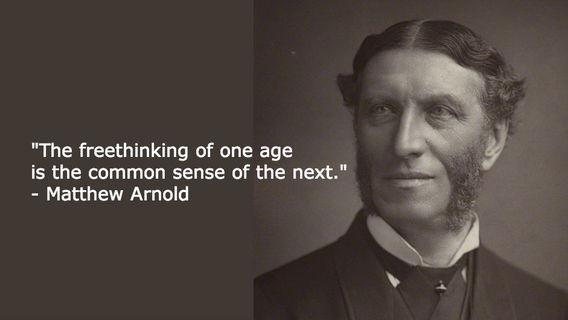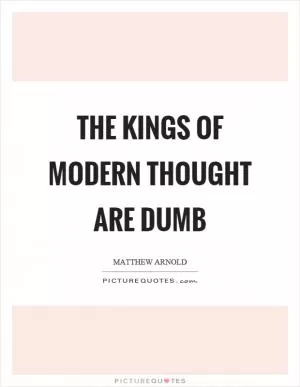The freethinking of one age is the common sense of the next

The freethinking of one age is the common sense of the next
Matthew Arnold, a prominent 19th-century English poet and cultural critic, once famously said, “The freethinking of one age is the common sense of the next.” This statement encapsulates the idea that ideas and beliefs that were once considered radical or unconventional eventually become widely accepted and ingrained in society as common sense. Arnold's words highlight the ever-evolving nature of human thought and the progression of ideas over time.Throughout history, there have been numerous examples of ideas that were initially met with skepticism or resistance but eventually became widely accepted. For instance, the concept of a heliocentric solar system proposed by Copernicus in the 16th century was considered heretical at the time but is now a fundamental principle of modern astronomy. Similarly, the idea of universal suffrage and equal rights for all individuals, which were once radical notions, are now considered basic principles of democracy in many parts of the world.
Arnold's words also speak to the importance of challenging conventional wisdom and questioning established beliefs. Freethinking individuals who dare to challenge the status quo often face criticism and opposition, but their ideas can pave the way for progress and change. By pushing the boundaries of accepted knowledge and beliefs, these individuals can spark new ways of thinking and ultimately shape the common sense of future generations.












 Friendship Quotes
Friendship Quotes Love Quotes
Love Quotes Life Quotes
Life Quotes Funny Quotes
Funny Quotes Motivational Quotes
Motivational Quotes Inspirational Quotes
Inspirational Quotes